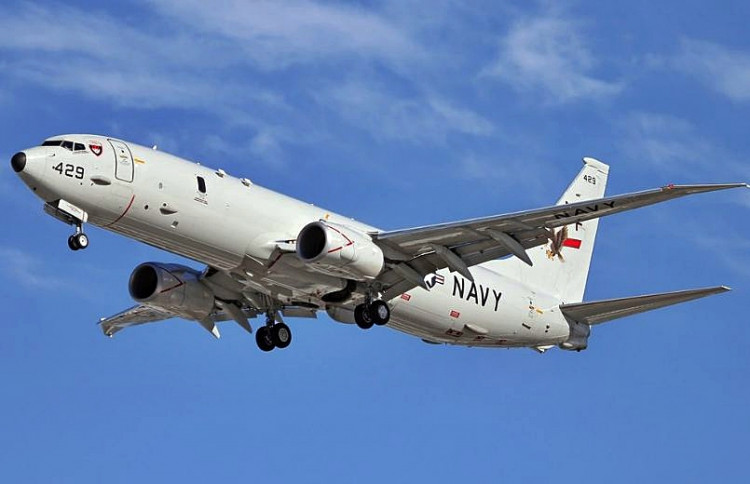New Zealand has purchased four Boeing P-8A Poseidon anti-submarine warfare, anti-surface warfare and maritime patrol jet aircraft from the United State to monitor encroachments by the People's Liberation Army Navy (PLAN) into the South Pacific Ocean and the Tasman Sea.
The Jets will also be used for long-distance patrols into the South China Sea in concert with the Royal Australian Navy, the Royal Australian Air Force and the U.S. Navy. The Poseidons, which were acquired at a cost of $1.6 billion, will be flown by the Royal New Zealand Air Force (RNZAF).
The twin-jet aircraft will enter service with the RNZAF in 2023. The acquisition of the Poseidons is part of New Zealand's new strategy of casting a wider reconnaissance net into the waters surrounding the island nation. Defense Minister Ron Mark said New Zealand will acquire other surveillance aircraft, including long-distance aerial drones, for more intense reconnaissance closer to the country's shores.
"This will free up the new P-8A fleet to fly more missions in the South Pacific and further afield," he said. Mark noted that the jet aircraft "strengthens the coalition government's Pacific Reset by providing a maritime patrol capability with the significant range and endurance needed to assist our partners (the U.S. and Australia) in the region."
"Maintaining a maritime patrol capability is essential for New Zealand's national security, and for our ability to contribute to global security efforts," said Mark.
The four P-8As will apparently be unarmed and limited to long-range reconnaissance and signals intelligence operations against the PLAN. New Zealand will pay an additional $1.46 billion for the associated equipment and support necessary to the operation of the Poseidons.
These include radar systems; electro-optical and infrared sensors; an acoustic system; missile warning sensors; GPS systems and mission software. The P-8A has a combat radius in excess of 2,200 kilometers and can remain on station for four hours while conducting anti-submarine warfare operations.
Like Australia, New Zealand is alarmed by the military expansionism of China in Asia. New Zealand's 40-page Strategic Defense Policy Statement for 2018, which was issued July 6, warns of China's increasing influence in the Pacific, especially its militarization of the South China Sea.
The document says China is challenging the existing peaceful order in Asia while increasing its economic involvement and investments in Pacific island nations long under New Zealand's influence. It noted that China's aggressive policies can potentially damage "human rights, arms control, and non-proliferation efforts."
The document pointed out that Australia and the U.S. are reinforcing regional peace and stability by focusing on "maritime security and freedom of navigation."






